
Transcription
http://apw.dhinitiative.org/
Help us transcribe essays
History, Process, Mission
The American Prison Writing Archive evolved from a book project completed in 2014 with the publication of Fourth City: Essays from the Prison in America, the largest collection to date of non-fiction writing by currently incarcerated Americans writing about their experience inside. The submission deadline for Fourth City passed in August 2012, yet submissions never ceased. The imperative to build the APWA grew from the clear evidence that, once invited, incarcerated people would not give up the chance to tell their stories. The APWA currently hosts over 1,600 essays, enough work to fill over twenty-two volumes the size of Fourth City (a 338-page, 7”x10” text).
Essays are solicited through prisoner-support newsletters and a call for essays in Prison Legal News. Writers then write to request our permissions-questionnaire (PQ). The PQ is then returned with essays on anything that falls within the wide field described in the PQ. All submissions are read and, with very rare exceptions, scanned, and ingested. The information gathered from the PQ enables faceted searching. All handwritten essays are also transcribed—and can be transcribed by any visitor—to make them fully searchable. Anyone with first-hand experience inside US carceral institutions today is eligible to submit essays. This includes prison employees and volunteers, who materially shape the day-to-day conditions in which incarcerated people live, and who are in turn deeply affected by their work. A truly inclusive vision of life inside requires the testimony of everyone who lives, works, or volunteers in prisons today. In this light, readers will note the under-representation of women, trans, and gender nonconforming people in the archive. We invite all APWA visitors who work with or know incarcerated people to help us in increasing contributions from these populations, as well as from prison workers and volunteers.
Amid the unprecedented American experiment in mass-scale incarceration, the APWA hopes to disaggregate this mass into the individual minds, hearts and voices of incarcerated writers. At the same time, like other witness literatures, writers from across the nation yield insights into the common traits of their experience. Visitors can search by state, author attributes, etc. (See and explore this page’s left sidebar.) They can also search by keywords, and, after a keyword search, use the right sidebar for more specific author attributes. With these tools, visitors can not only read widely; they can curate their own virtual collections.
The mission of the APWA is to replace speculation on and misrepresentation of prisons, imprisoned people, and prison workers with first-person witness by those who live and work on the receiving end of American criminal justice. No single essay can tell us all that we need to know. But a mass-scale, national archive can begin to strip away widely circulated myths and replace them with some sense of the true human costs of the current legal order. By soliciting, preserving, digitizing and disseminating the work of imprisoned people, prison workers and volunteers, we hope to ground national debate on mass incarceration in the lived experience of those who know prisons best.
Principal Investigator
Doran Larson, Ph.D.
Walcott-Bartlett Professor of Literature and Creative Writing
dlarson@hamilton.edu
Other posts by this author
|
2023 may 31
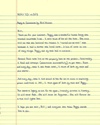
|
2023 mar 20
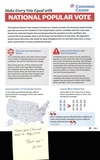
|
2022 aug 23

|
2022 aug 23
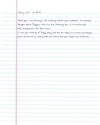
|
2022 aug 23
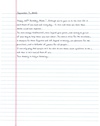
|
2022 aug 23
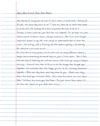
|
More... |
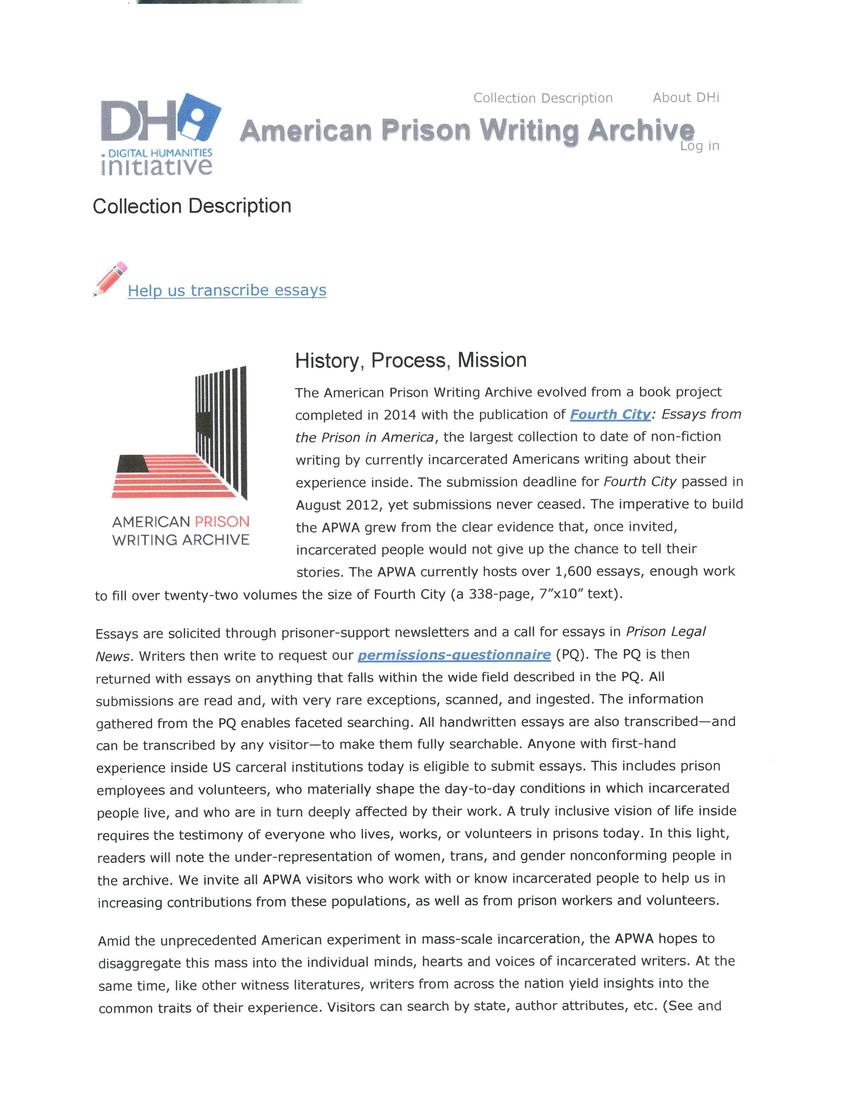
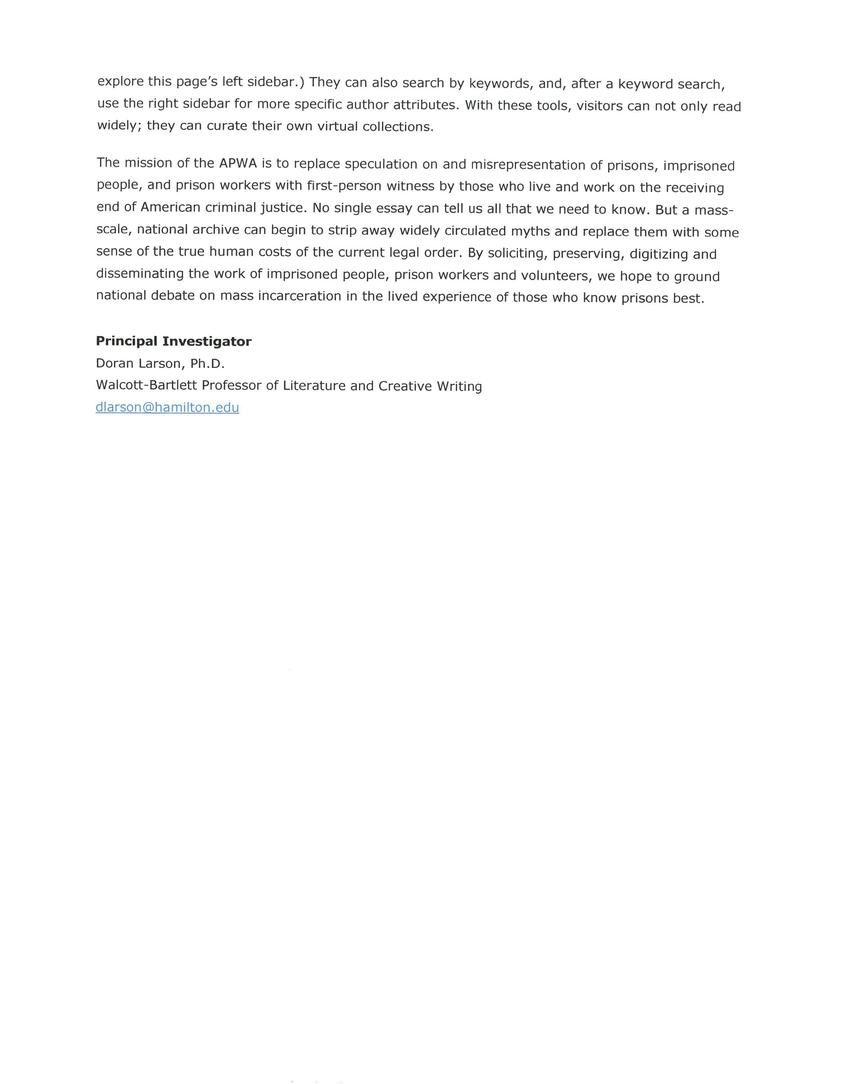

Replies